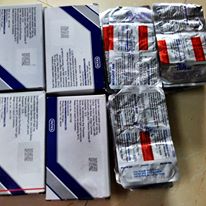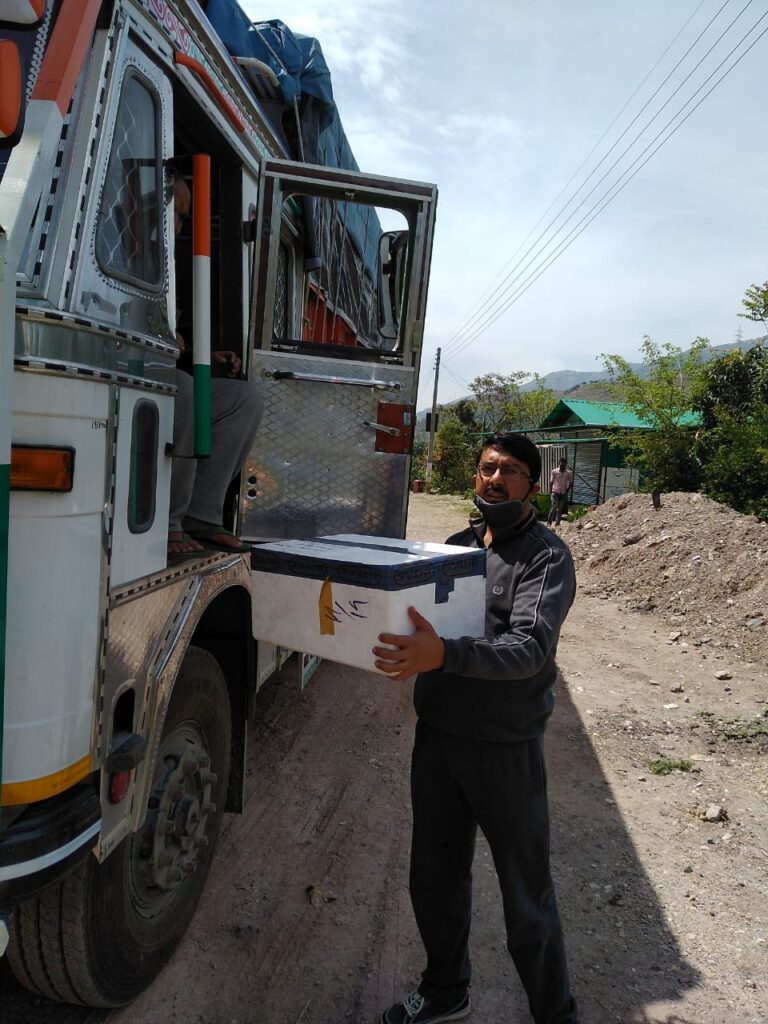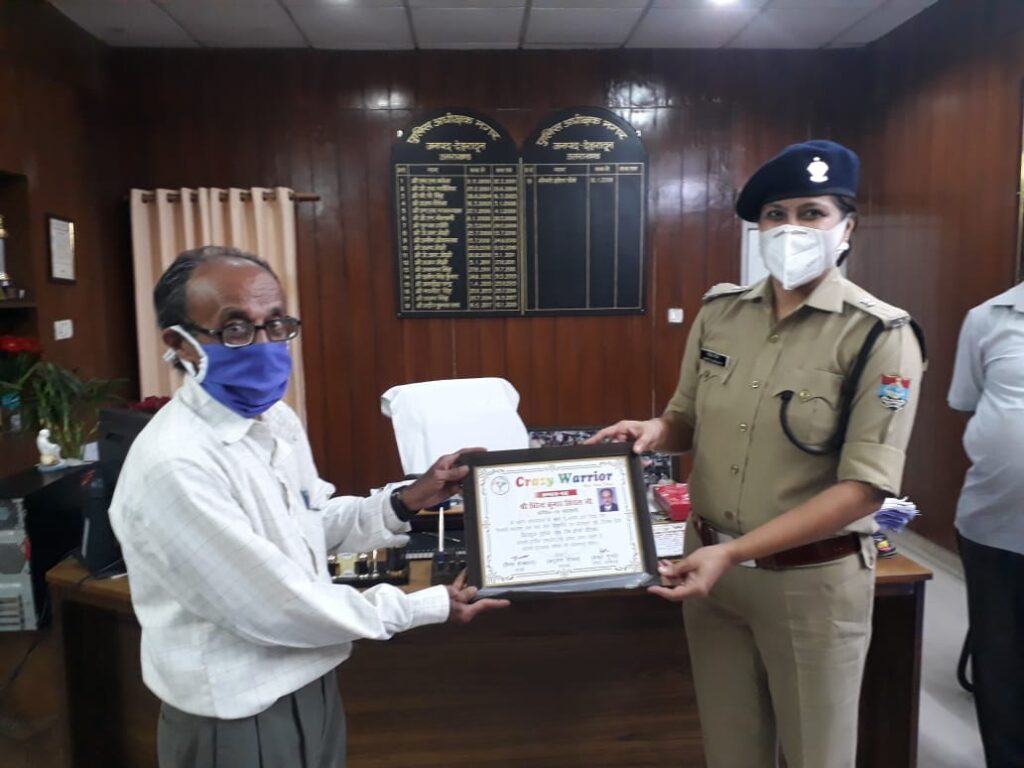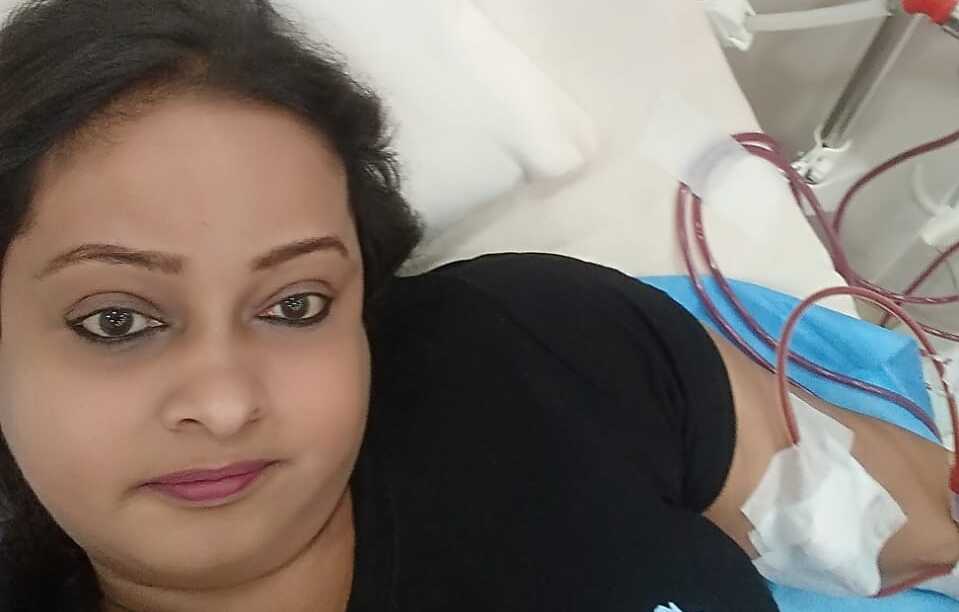The coronavirus raised its hood in advanced countries in Europe and the United States of America sometime in December 2019. In early March, when travel restrictions were being applied, foreseeing problems in supply of imported medicines and consumables, KWF took a preemptive step to warn patients to stock medicines.
When the Government promoted social distancing, dialysis patients found few city autos on the streets. KWF’s Sejal Jobanputra’s tweets caught media’s attention with Hindustan Times carrying a story on 23rd March with interviews of affected patients. By 24th March, complaints came from other parts of India of patients unable to reach their dialysis centers. The police were strictly following orders, immobilizing patients who needed emergency treatments.
In Mumbai, Amar Gandhi Foundation (AGF) reacted swiftly. Their Programme Director, Samiir Halady sought assistance from the Chief Minister’s office and the Commissioner of Police amongst other officials to create a strategic plan. During the initial stages, Samiir Halady helped by making incessant contacts with Members of Legislative Assembly and coordinating with Bombay Municipal Corporation. Mumbai’s Nephrologists, with AGF playing a lead role, were instrumental in making dialysis centers operational after fumigation, so patients were not stranded for too long. AGF’s communications on patients’ issues led to some important policy decisions in the Ministry. For the first time, the police force and public understood the role of dialysis as a survival treatment, needing patients to go to centers thrice a week.To overcome issues with public transport, AGF tied up with Jan Kalyan Samiti to build a car pool of volunteers to ferry patients from home to hospital and back.
KWF’s Uttar Pradesh State Coordinator, Anand Lal Banerjee, contacted the police on duty in Delhi, Hyderabad and other cities to assuage the situation peacefully.
Gradually, centers were closing down without notice, or on the pretext of fumigating, or some deep cleaning, or when patients were detected with COVID. It was tough on patients reaching centers with much difficulty, after explaining to police their purpose to leave their home, only to find centers shut. With recordings of patients’ experiences from Jammu, Patna, Gwalior, Guwahati, Bengaluru and Delhi, we approached Republic, NDTV and CNN News18. Our message being, while we should be battling COVID19 during lockdown, CKD patients must not be deprived of dialysis, which could have fatal consequences.
This received Central Government’s attention, and they responded expeditiously by prompting the states to create “COVID19 Guidelines for Dialysis Patients” stating that dialysis was important, so all patients should be given access without exception, with subsequent revisions to the guidelines.
But the situation on ground level needed close monitoring by the Mumbai team Brijesh Gadhia and Sejal Jobanputra, to redirect and assign patients to alternative centers, when centers refused them dialysis. Later due to persistent efforts from Sandhya Fernandes, Rohit Upadhyay andBhumika Karecha @Team_SOSMumbai, acting as conduit, our team helped reach out to so many people, who got a facility for dialysis. Irrespective of our prompt coordination, we knew of a few people who succumbed due to delays in dialysis. ” Indian Medical Association, Pune was approached and they raised patient issues with the Ministry.
Acting swiftly, two team members wrote an Op-ed that got published in Indian Express, “During lockdown, the concerns and challenges of forgotten kidney patients.” It was a desperate call to the government machinery to solve the issues of patients who had to deal with their already fragile health condition.
But the everyday situation changed dramatically at dialysis centers, when they chose to reduce dialysis sessions to twice a day, reducing the time to three and a half hours instead of four.

Lockdown meant transport of dialysis supplies and medicines were stopped. KPWA’s Treasurer, Purnanand Saket, from Bangalore broke the news to newspapers, and we went back to television channels for urgent lifting of lockdown for emergency medical supplies and medicine transportation. However, rail and road transport took time to get streamlined. Medicines could be reached to patients in remote areas through MOHAN Foundation’s Honorary Director, Mr Shridhar Hanchinal’s unassuming work and support. Help was also extended by many pharmaceutical companies.” (Kidney patients may contact him for medicines at discounted rates @ shridhar@mohanfoundation.org)

Remote areas in the north suffered very badly; medicines were not available in Shimla and Punjab. Satyendra Singh Rathod from Himachal Pradesh and Karamjeet Kaur from Punjab, organised pick up of medicines from Chandigarh and used milk and grocery delivery vans to transport them to reach post-transplant patients living in Nabha, Hoshiyarpur, Jalandhar, Kapurthala, Tarantaran, Batala; villages in Jalandhar District, Pathankot and in Himachal Pradesh; Sunder Nagar, Kullu, Mandi (HP) Una, Manali, Bilaspur, Baijnath, Pinjore, Jahu and Joginder Nagar (HP).
The press media, which covered stories on problems to reach dialysis centers, sudden closing down of centers without notice, on unavailability of medicines, sudden demands for COVID tests that were huge costs for patients, helped now and then.
Madhav Chakrabarthy, our West Bengal State Coordinator was inducted into COVID hospital as Renal Paramedic dialysis support. Jharkhand State Coordinator, Praveen Kumar Singh distributed dry ration, soaps and detergents, and was involved in maintaining hygiene in different localities, schools, offices and local LIC offices. Mujahid Naqvi, our Rajasthan State Coordinator offered medical assistance for emergency dialysis treatments in Jaipur, where he also distributed grocery among people of EWS, while Anjali Uthup Kurian helped people in Cochin with food and supplies, and counseled people to manage the lockdown with positivity.
V G Chandresekharan and Vasu Sandur wrote to the Kerala and Karnataka Government seeking some facilities for patients.

Local NGO at Dehradun honored Mr Virendra Singha with the“Corona Warrior” award , given to him by Superintendent of Police, Madam Shweta Choubey on 1st July, 2020.
By the end of July, Mumbai city was the best organized. The nephrology group there developed a strategy to reopen centers after sanitization. The issue had received adequate coverage on national television with nephrologists responding to patient-callers, assuring them of uninterrupted dialysis. Our constant concerns are about those others struggling across other metros, about the situation in Patna, Bhopal, Aurangabad, Chandigarh and countless other secondary and tertiary cities and towns. Bangalore patients have started seeking help on social media. We assume that all other city patients have settled down to the new dialysis system in COVID times.
In our attempts to reach the Government, volunteers involved in our campaigns included Bhagavan Reddy (Telangana), Chandralekha Das (Assam), Danish Haque (Patna), Deepak Saikia (Assam), Manjit Singh Bali (Jammu), Monika Verma (Delhi), Pramod KP, (Bengaluru), Sandhya Vasanthakumar (Karnataka), Sameer Gupte (Pune), Satyaki Baneerjee (Kolkata), Shruti Mukundan(Delhi), Suresh Palakeerthi (Hyderabad), Ved Prakash Yadav (Gwalior) and Vasundhara Raghavan.
KWF was involved in webinars organized by Biocon Biologics and Patientsengage with nephrologists from across many states to guide patients on how to handle health during COVID19. Interesting topics and language webinars were ways to emotionally connect with CKD patients during lockdown.
Press Coverage

Dialysis patients not getting consumables or easy access to hospitals during the lockdown – Gaonconnection | Your Connection with Rural India

Amid shutdown, kidney patients struggle to reach hospitals for dialysis

Lockdown, shut hospitals leave dialysis patients in Mumbai in a lurch

Dialysis patients flood social media with distress posts | India News – Times of India
ALL CONTACTS
- B 504, Vrindavan Co-op Housing Society, Goregaon Link Road, Mulund (W), Mumbai – 400 080
- +91 81082 82100
- kidneywarriors.organisation@gmail.com
SUBSCRIBE
Stay connected with KWF by subscribing to our newsletter for the latest updates and news.
- Copyright © 2020 Kidney Warriors Foundation


Leave a Reply